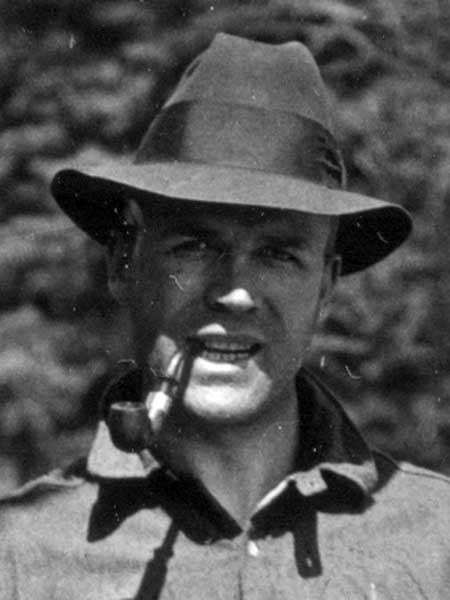 |
Douglas Leader Durkin
|
Author, educator.
Born at Parry Sound, Ontario on 9 July 1884, one of four children of John Douglas Durkin (c1846-1921) and Marjorie Maria Leader (?-1935), he and his family came to Winnipeg in 1896. In March 1898 they moved to the Swan River Valley and lived for a time at the Minitonas Tent Town before taking up a farm.
He taught at West Favelle School (1901-1902) then, in 1902, enrolled at Wesley College and graduated in 1908. He returned to teaching at MacGregor School (1908-1909) and, on 29 December 1909, he married Estella M. Thomson (?-?) at Winnipeg. They spent a year at Spokane, Washington where he was Secretary of the local YMCA. They returned to Manitoba and he taught English at Brandon College (1911-1915), Wesley College (1915-?), and University of Manitoba (?-1921).
He published a collection of poems entitled Canada’s Fighting Men (1918) and two novels about life in Manitoba, The Heart of Cherry McBain (1920) and The Lobstick Trail (1921). In 1921, he moved to the United States, abandoning his wife and academic career. There, he wrote his best-known novel, The Magpie (1923), set in Winnipeg after the First World War. In 1945, he married author Martha Ostenso with whom he had collaborated in the novel Wild Geese, published in 1925 under her name alone. He had limited success during the remainder of his career.
His work was rediscovered after his death, which occurred at Seattle, Washington on 4 June 1967.
See also:
Introduction by Peter Rider in: Douglas Durkin, The Magpie, Toronto: University of Toronto Press, 1974.
Ontario birth registration, Ancestry.
Marriage registration [Douglas L Durkin, Estella M Thomson], Manitoba Vital Statistics.
“Will not appoint professor of English,” Winnipeg Tribune, 19 July 1921, page 3.
Death registration [John Douglas Durkin], Manitoba Vital Statistics.
“Fenian raid veteran dies,” Winnipeg Tribune, 8 September 1921, page 5.
“Mrs. J. D. Durkin dies; came to Winnipeg in 1896,” Winnipeg Tribune, 8 April 1935, page 4.
The Development of Education in Swan River Valley by J. N. R. Clark, MEd thesis, Faculty of Education, University of Manitoba, 1949, page 155.
Lasting Impressions: Historical Sketches of the Swan River Valley, Swan Valley Historical Society, 1984, page 189-192.
We thank Nonni Jonsson for providing additional information used here.
This page was prepared by Gordon Goldsborough.
Page revised: 20 June 2024
Memorable Manitobans
This is a collection of noteworthy Manitobans from the past, compiled by the Manitoba Historical Society. We acknowledge that the collection contains both reputable and disreputable people. All are worth remembering as a lesson to future generations.
Search the collection by word or phrase, name, place, occupation or other text:
Custom SearchBrowse surnames beginning with:
A | B | C | D | E | F | G | H | I | J | K | L | M | N | O | P | Q | R | S | T | U | V | W | Y | ZBrowse deaths occurring in:
1975 | 1976 | 1977 | 1978 | 1979 | 1980 | 1981 | 1982 | 1983 | 1984 | 1985 | 1986 | 1987 | 1988 | 1989 | 1990 | 1991 | 1992 | 1993 | 1994 | 1995 | 1996 | 1997 | 1998 | 1999 | 2000 | 2001 | 2002 | 2003 | 2004 | 2005 | 2006 | 2007 | 2008 | 2009 | 2010 | 2011 | 2012 | 2013 | 2014 | 2015 | 2016 | 2017 | 2018 | 2019 | 2020 | 2021 | 2022 | 2023 | 2024 | 2025 | 2026
Send corrections and additions to this page
to the Memorable Manitobans Administrator at biographies@mhs.mb.caCriteria for Memorable Manitobans | Suggest a Memorable Manitoban | Firsts | Acknowledgements
Help us keep
history alive!